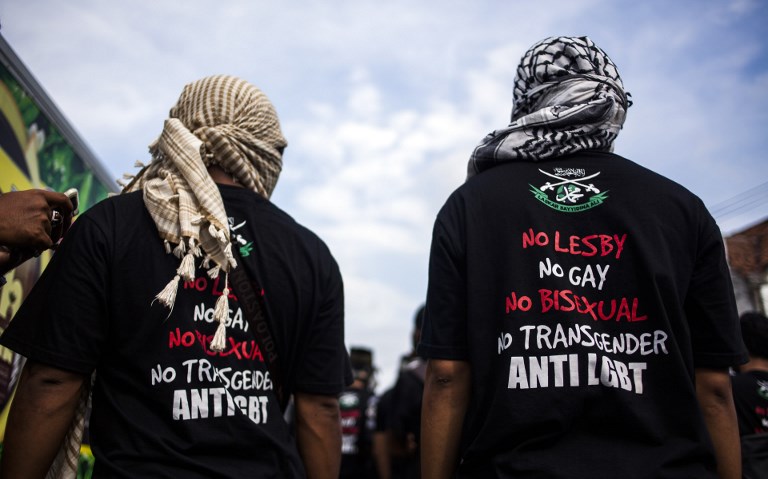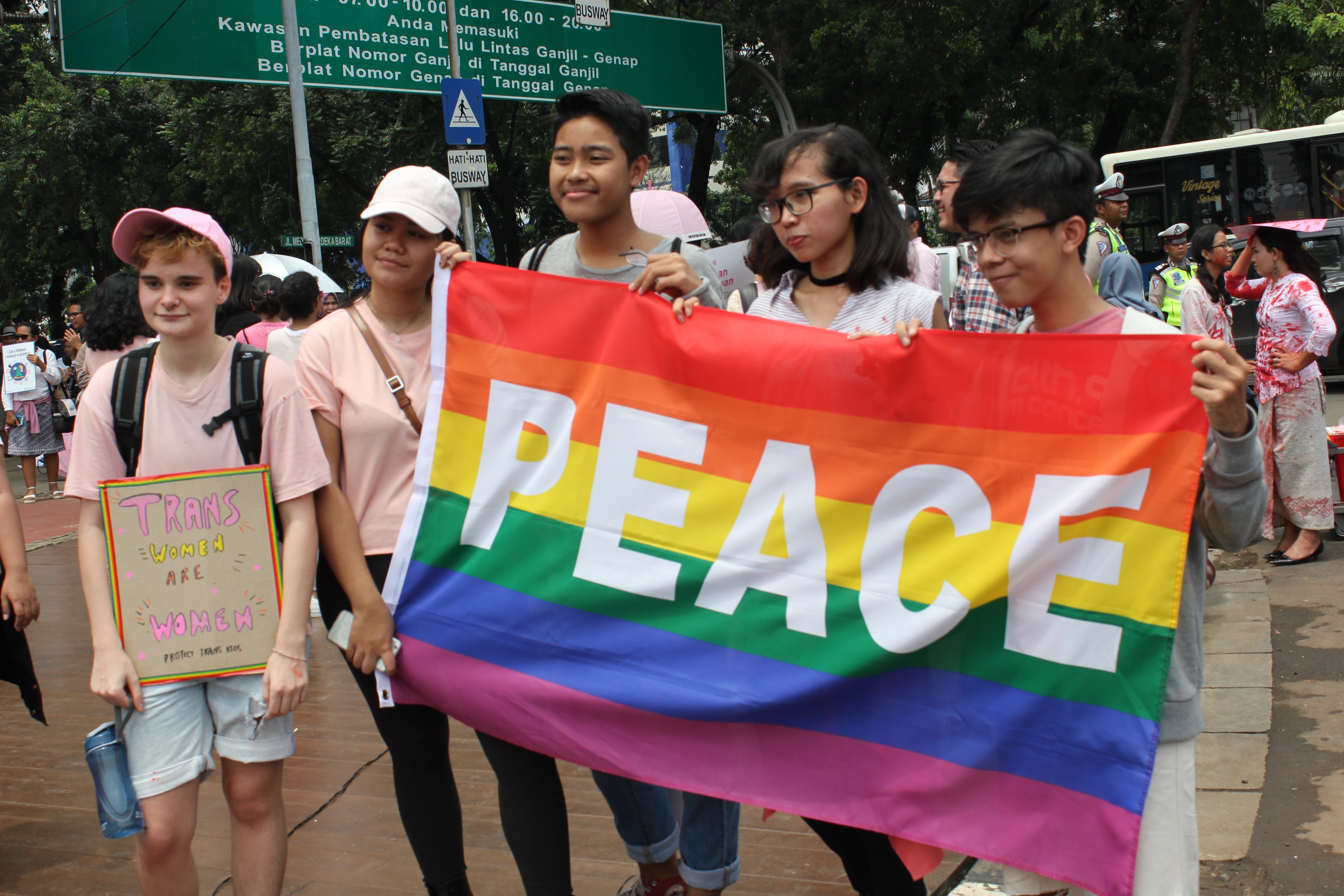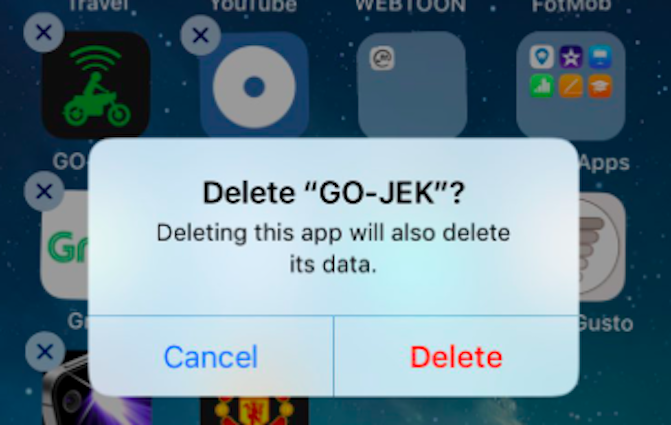Lately, it feels like we’re teetering dangerously close to reliving the worst of the LGBT moral panic that swept Indonesia in 2016. Many people are quick to freak out over anything that even looks like support for LGBT rights, and instead of protecting the minority group, government officials are stoking public fears — this week, one regency even asked mosques to preach about the dangers of LGBT during Friday sermons.
With both the Indonesian public and authorities all too quick to discriminate against LGBT citizens, one might hope that progressive private companies would be able to do something. But this latest panic may have actually been set off by an internal attempt to embrace diversity at one of Indonesia’s most famous companies.
On Coming Out Day last week (Oct. 11), an employee at ride-hailing service Go-Jek, Indonesia’s most highly-appraised startup and one of the country’s four unicorns, shared his pride on social media over his company facilitating an internal event promoting diversity and inclusivity, as well as adopting non-discriminatory policies towards underrepresented minorities.
Such a move by Go-Jek is hugely commendable and essentially unprecedented for an Indonesian company of such size and stature. But it was also a major risk for them, given that polls show the vast majority of the Indonesian public say they do not accept the LGBT community (one survey from this year said nearly 90% of Indonesian thought the LGBT community was a “threat” to the country).
The backlash against Go-Jek was swift. Very soon after the post went viral, social media was filled with calls for Indonesians to boycott the startup using the hashtag #uninstallgojek.
In response to the controversy, Go-Jek released a statement that while they support diversity, the employee’s post and his views do not necessarily represent those of the company.
GO-JEK menjunjung tinggi keberagaman yang menciptakan persatuan dan keharmonisan, sejalan dengan nilai-nilai dan budaya Indonesia, yang ber-Bhinneka Tunggal Ika. pic.twitter.com/OQq7n1JmlF
— Gojek Indonesia (@gojekindonesia) October 13, 2018
Those of us who support LGBT rights might have hoped that Go-Jek would bravely take a stand on the issue, rather than issuing the safe, non-committal statement above. But is it reasonable to have expected that from them?
Supporting LGBT ‘like suicide’ for companies
Tunggal Pawestri, a renowned film producer as well as a gender and sexual rights activist, says she understands the precarious position Go-Jek found itself in and said even she couldn’t expect for the company to take on the role as sole champion of LGBT rights among Indonesian corporations.
“On the one hand, I want Go-Jek to stand up and declare openly about this, but at this point in time, it would be like suicide,” she told Coconuts.
“For me, it is much more important to see other companies — big foreign corporations — to speak up as well about this. So Go-Jek would not be alone. Ask ANZ Bank, H&M to make similar events, so the staff from Go-Jek who initiated the event can receive support.”
Tunggal said she helped the United Nations Development Programme (UNDP) and International Labour Organization (ILO) conduct LGBT sensitivity training for employees of big foreign corporations in Indonesia over the past few years. Unfortunately, while she observed positive initial reactions from staff members, the companies became more cautious to implement diversity programs following the 2016 LGBT moral panic.
Tunggal said companies shouldn’t just act out of fear of being boycotted by the public and could find strength in numbers if more acted in unison.
“Nah, it’s just bluffing. Before this LGBT issue, people were also boycotting ‘Jews’-based products, no? If more companies’ staff were as brave as Go-Jek’s staff, it would be difficult to boycott them all,” she said.
Government apathy a major factor

Kyle Knight, a researcher for the LGBT rights program at Human Rights Watch, says the Go-Jek controversy fits into a pattern of LGBT moral panic that has gripped Indonesia for nearly three years and which has often been sparked by open displays of support for LGBT rights made by international companies.
“Periodically during this crisis, public furor centered around private sector support for LGBT rights – including an outburst earlier this year when a 2013 statement from the Starbucks CEO supporting marriage equality circulated on social media,” he said.
Knight added that companies like Go-Jek, or their employees, can’t be alone in championing LGBT rights — they need major assistance from the government.
“The statement Go-Jek released in response to this uproar on social media reiterates Indonesia’s ‘unity in diversity’ motto – something the government has failed to uphold in recent years with regard to LGBT communities. Public and private sector leaders in Indonesia should continue to message to the public that ‘Indonesian values’ include respect for privacy, safety, and sexual and gender diversity.”
The impact of the private sector being afraid to openly show support for LGBT rights — and the government being unwilling to protect them — has manifested in numerous disturbing ways in recent years, including police and vigilante raids against private gatherings of LGBT individuals or those suspected of being such.
But even for those who don’t get caught up in such extreme discrimination, the lack of protections for LGBT employees at most Indonesian companies means some must suffer from nearly non-stop harassment and hostility from their co-workers.
‘Not even on Coming Out Day’
Dev (not her real name) says she has spent years quietly suppressing anger at being called a “tomboy” (a term often used to describe women perceived to have non-feminine characteristics in Indonesia, sexual orientation notwithstanding). She told us she has never dared to come out, despite being constantly goaded by her colleagues about her sexuality.
“I don’t know what would happen if everybody at work knew I was a lesbian. Maybe I would feel even more lonely. I can’t come out, not even on Coming Out Day,” she said.
“I have a couple of close friends who know about my secret, and I treasure them for it. But there has never been any sort of campaign at work to raise awareness for inclusivity, so I doubt most of the people here can empathize.”
Another employee of a private company we talked to, Drew (not his real name), confidentially told us that he’s bisexual but says he’s relieved that all the gay jokes directed at him at work will stop soon, because he’s getting married to a woman this year.
“I’ve always gotten the sense that my colleagues wanted me to come out so they can continue making fun of me. I realize my mannerisms can be described as effeminate, and I was a soft target,” he said.
“Now [that I’m getting married], hopefully they’ll shut up.”

Drew and Dev both said that their workplaces have never done anything to support LGBT inclusivity. Drew said he hears homophobic slurs in his office so frequently that he’s learned to play along and laugh with his coworkers, even when he’s the target.
Having employees who have to endure this sort of thing every day is not just heartbreaking, it’s bad for business. One study done last year by the Williams Institute at UCLA School of Law estimated that discrimination against LGBT individuals could cost Indonesia up to US$12 billion (IDR159 trillion) per year. Their analysis rests on the idea that a citizen who feels secure and accepted by their society and family are the most likely to be economically productive.
It may still be suicide for Go-Jek or any other one Indonesian company to take a stand on LGBT rights and diversity. But if many were to stand up together and join with the thousands of major international companies that support LGBT rights, then maybe they’d see that the good they could do can outweigh all the risks.
Read Human Rights Watch’s latest report on LGBT issues in Indonesia, titled, ‘Indonesia: Anti-LGBT crackdown fuels health crisis’ here.




